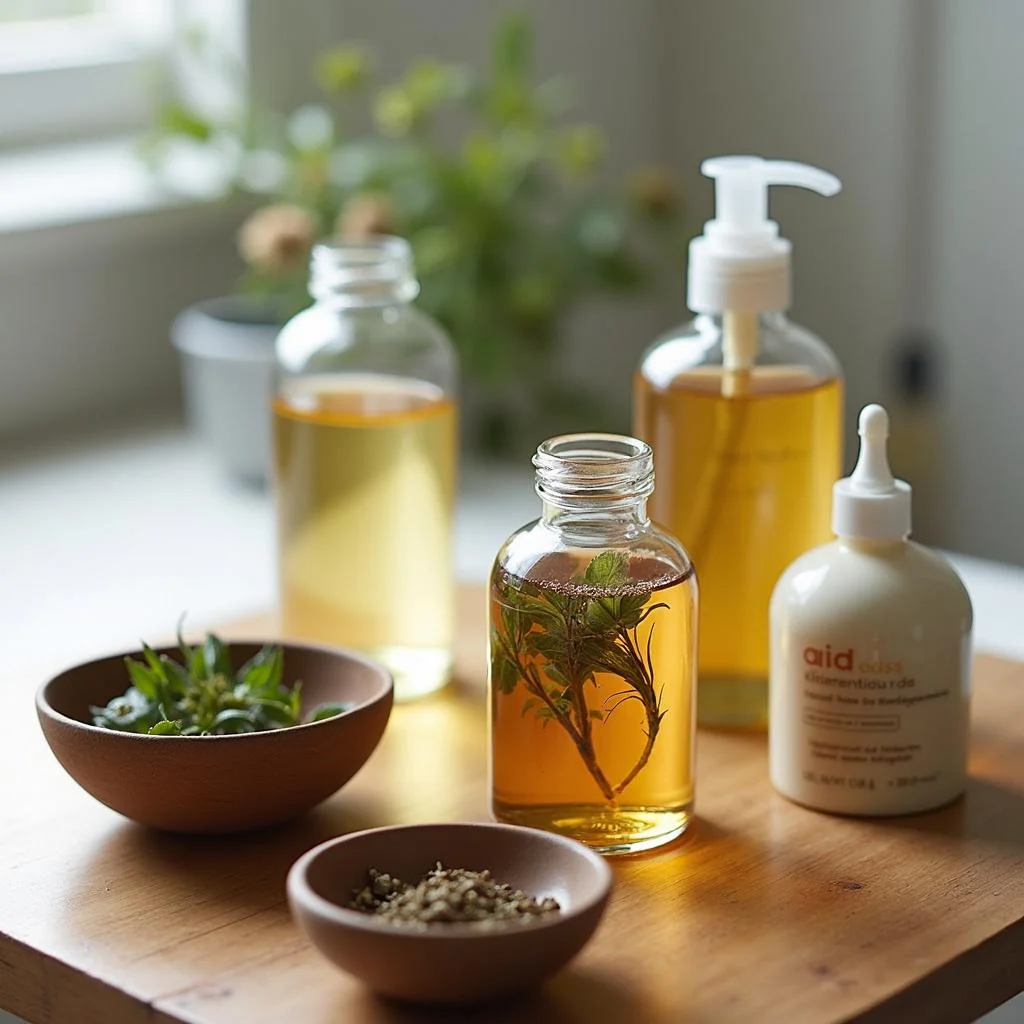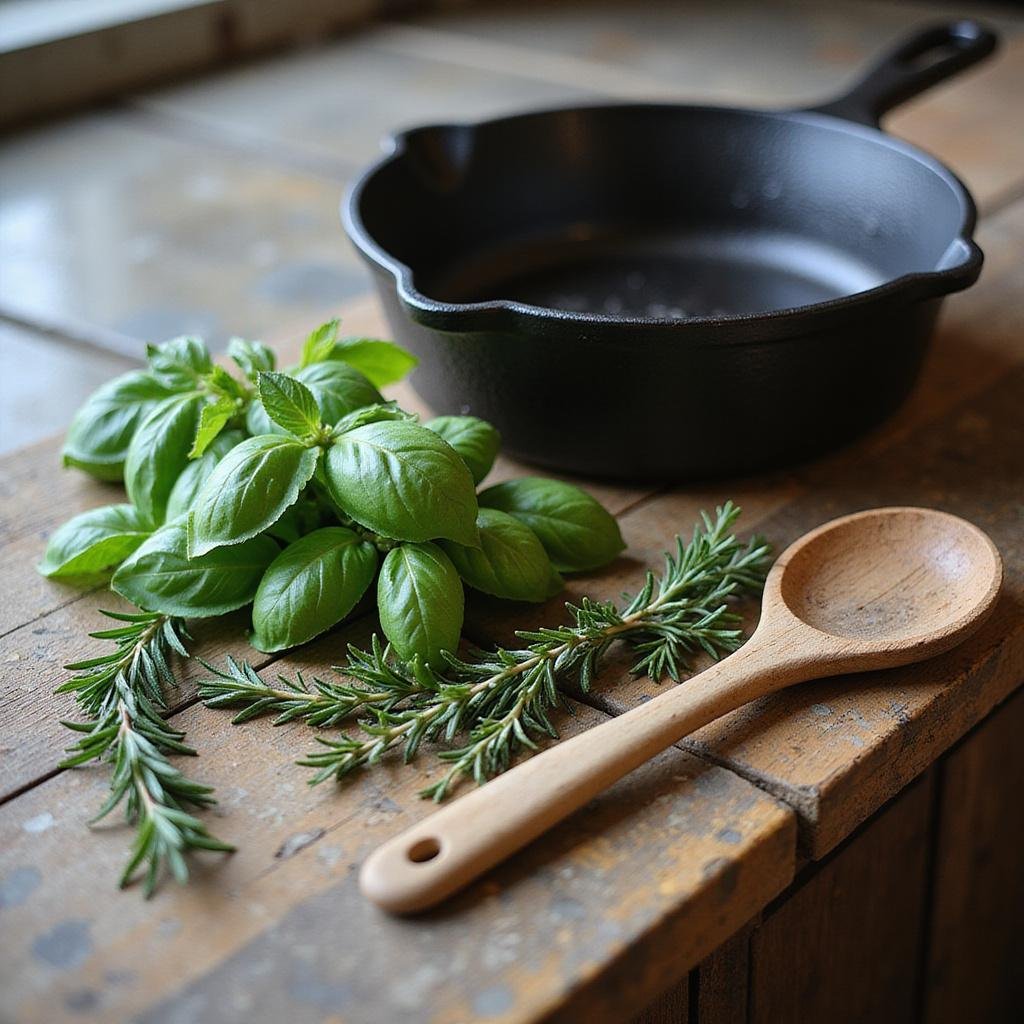1. Introduction
Herbs have been celebrated for centuries for their versatile benefits in both culinary arts and skincare routines. Their natural power enhances flavors in dishes and elevates skin health with nourishing properties. Whether you’re a passionate home cook exploring new recipes or someone interested in natural skincare remedies, knowing how to use herbs in both cooking and skincare can truly transform your daily routines. In this comprehensive guide, we will explore practical tips, health benefits, and creative ideas for incorporating these botanical treasures into every aspect of your lifestyle. From essential herbs like basil and rosemary to trending products available in our curated best oils for cooking and cleaning, discover the essential tools and techniques for mastering herb utilization.
2. Benefits of Using Herbs in Cooking and Skincare
Herbs are powerhouses packed with antioxidants, vitamins, and essential oils that provide numerous health and beauty benefits. When incorporated into cooking, herbs can brighten a dish, add depth of flavor, and significantly boost nutritional value. Think about fresh lavender or mint in summer beverages, or aromatic rosemary in roasted meats—these herbs elevate the culinary experience. On the skincare front, herbs such as chamomile, calendula, and lavender offer anti-inflammatory, antimicrobial, and anti-aging properties, promoting healthy, radiant skin. Integrating herbs into your routines creates a natural approach to enhancing overall well-being without synthetic additives. To explore effective herbal infusions and essential oils, visit our tips on turning orange peels into cleaning gold, which also highlight the natural cleaning power of herbs and citrus, perfect for sustainable living. Embracing the dual benefits of herbs encourages healthier, more natural living.

3. How to Incorporate Herbs into Your Cooking Routine
Integrating herbs into your kitchen can elevate your everyday meals to gourmet levels. Consider starting with versatile fresh herbs like basil, parsley, and cilantro—it’s easy to add them into salads, sandwiches, and light pastas for instant flavor. Dried herbs such as thyme, oregano, and rosemary add depth to hearty stews, soups, and roasted vegetables. For a more refined touch, create herb-infused oils and vinegars that serve as delicious dressings or finishing oils. Making herb butter by mixing chopped herbs with softened butter is a simple yet elegant way to enhance bread and grilled meats. Garnishing dishes with freshly chopped herbs just before serving adds visual charm and bursts of flavor that elevate any meal. For premium cooking tools, check out products like the Crock-Pot 7 Quart Oval Manual Slow Cooker or the Ninja Blender Mega Kitchen System, essential for prepping and cooking with herbs efficiently.
4. Using Herbs in Skincare: Natural Benefits and Methods
Using herbs for skincare is a natural, effective way to promote healthier, more youthful skin. Herbs such as chamomile, lavender, and rosemary can be used to create soothing infusions that serve as facial tonics—perfect for calming sensitive skin or reducing inflammation. For homemade herbal masks, combine powdered herbs like turmeric or calendula with clay or yogurt to target skin issues like acne or dryness, transforming your skincare routine naturally. Infusing carrier oils with herbs like lavender or tea tree creates nourishing serums that improve skin elasticity and hydration. Herbal baths made with dried herbs like chamomile or rose petals help relax muscles and rejuvenate skin while providing aromatherapeutic benefits. Spot treatments with herbal tinctures, such as aloe vera or calendula, can aid in healing blemishes and irritations. To enhance your herbal skincare collection, consider tools like the CAROTE Nonstick Pots and Pans for making herbal decoctions and masks easily at home. Using natural herbs ensures your skincare remains gentle yet effective.

5. Tips for Growing and Harvesting Herbs
To maximize the benefits of herbs for both kitchen and skincare uses, consider growing your own plants. Choosing herbs suited to your climate and culinary preferences, such as basil, mint, rosemary, and lavender, ensures consistent fresh supplies. Ensure proper planting by using well-draining soil and placing herbs in areas with adequate sunlight for vigorous growth. Harvest herbs early in the morning when essential oils are at their peak for the best flavor and potency. To preserve herbs for future use, dry them in a cool, dark place—this method retains their flavor and medicinal properties. Proper care is essential: water regularly, prune to encourage growth, and stay vigilant for pests. For specialized gardening tools, the Cuisinart Bread Maker Machine can help you produce herb-infused bread or other baked goods, enriching your culinary repertoire with home-grown herbs.
6. Frequently Asked Questions (FAQs)
What are the best herbs for skincare?
Popular herbs renowned for their skincare benefits include chamomile, lavender, aloe vera, calendula, and rosemary. These herbs are appreciated for their soothing, anti-inflammatory, and regenerative properties, making them ideal for various skin types and concerns. Incorporating these herbs into DIY masks, infusions, or herbal oils can enhance your skincare routine naturally.
Can I use the same herbs for cooking and skincare?
Absolutely! Many herbs, including rosemary, mint, and lavender, are versatile and can be used both in flavorful recipes and in skincare preparations. Using herbs in multiple ways maximizes their benefits and provides a holistic approach to health and beauty. For instance, fresh lavender can be added to desserts and also infused into skincare serums.
How do I store herbs to preserve their potency?
The key is to store dry herbs in airtight containers in a cool, dark place. Proper storage preserves their flavor and medicinal qualities for months, making them available whenever needed for cooking or skincare purposes. For fresh herbs, refrigerate or freeze in glass storage containers to maintain freshness.
Are herbal skincare products safe for sensitive skin?
Most herbal products are gentle and suitable for sensitive skin, but it’s always recommended to perform a patch test before full application. Consult with a dermatologist if you have allergies or skin conditions. Using high-quality, organically grown herbs minimizes the risk of irritation and ensures you get the maximum benefit from natural ingredients.
7. Conclusion
Incorporating herbs into both your culinary and skincare routines is an natural, effective way to promote health, beauty, and flavor. By understanding how to grow, harvest, and use herbs, you can create a sustainable lifestyle that emphasizes wellness from the inside out. Whether you’re preparing delicious homemade meals with fresh herbs or pampering your skin with herbal remedies, these versatile plants are powerful allies in achieving a healthier, more vibrant life. For your kitchen needs, consider investing in versatile cookware such as the Crock-Pot 7 Quart Oval Manual Slow Cooker or the Ninja Blender Mega Kitchen System. Enhance your herbal experiences today and enjoy the natural benefits of herbs in all aspects of your wellness journey.


1 thought on “How to Use Herbs in Both Cooking and Skincare”